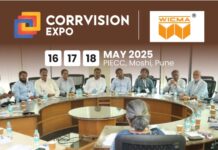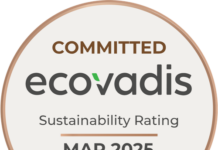
With the launch of the Make in India initiative by Hon’ble Prime Minister Narendra Modi, Federation of Indian Chambers of Commerce and Industry (FICCI) and Project Management Institute (PMI) submitted a report to the government to realise Make in India. The report was released at the ‘FICCI-PMI Symposium on Project Management Practices 2015’ organized by FICCI in partnership with PMI. Today, it is more critical than ever to build project management capabilities, especially at an organizational level for Make in India to deliver results. Realizing this, FICCI and PMI have identified the top three critical areas which need attention in order to create a conducive environment for the success of Make in India. The areas are:
-
Quality of stakeholder engagement and risk management in large projects
-
Nodal agency role in monitoring and supporting project execution
-
Training and tools for enhancing organizational project management capabilities, especially in government
‘FICCI-PMI Symposium on Project Management Practices 2015’ was organized to submit recommendations towards leveraging the science and art of project management for Make in India combined with a supporting eco-system. At the conference, the main speakers were Mr. Raj Kalady, Managing Director, PMI India, Dr A. Didar Singh, Secretary General, FICCI, Mr. Shailendra Singh, Joint Secretary, Department of Industrial Policy and Promotion, Mr Neeraj Gill, General Manager, Public Sector, Microsoft India and Ms. Sanjeevan Bajaj, CEO, FICCI Quality Forum.
Opening the inaugural session, Mr Raj Kalady, Managing Director, PMI India, said, “Everyone agrees that Make in India is an important initiative for the country, at the same time we need to be aware that Project Management is the crucial bridge connecting these projects/programs on paper and the successful realization of these initiatives. While it is very important to improve the business regulatory environment with speeding up of clearances for goods to be manufactured in India, but at the same time what happens to the goods that are manufactured in India? How do they reach the end consumer or the ports in case they are to be exported and how fast do they reach there? So for Make in India to be truly successful there needs to be an all around development of Infrastructure as well. This needs to be looked at from a very comprehensive perspective.”
Mr Shailendra Singh, Joint Secretary, Department of Industrial Policy and Promotion highlighted two important projects of Govt of India handled by his department namely ‘E biz’ and ‘Ease of doing Business’. He said that in most of the government projects, engaging with multiple stakeholders, handling sponsors resistance, inadequate planning, anticipation of risks in advance, taping warning signals, post implementation are biggest challenges before the project managers. Govt project managers are not trained in identifying these signals proactively and there is a hesitation to learn from others experience.
Dr A Didar Singh, Secretary General FICCI during his closing remarks said that “Everything we do is a project and everyone is an expert in Project Management but does not realize it. Combination of education, common sense and a third element ‘Process’ that is what Project Management is all about, as process links education and common sense which determines success of your project. FICCI aims at building capacity and through forums like these to discuss correct process from unsuccessful to successful stage. In Government it is presumed that Project Management knowledge is inherent with experience of working in government but certification of that knowledge is also required.”




























